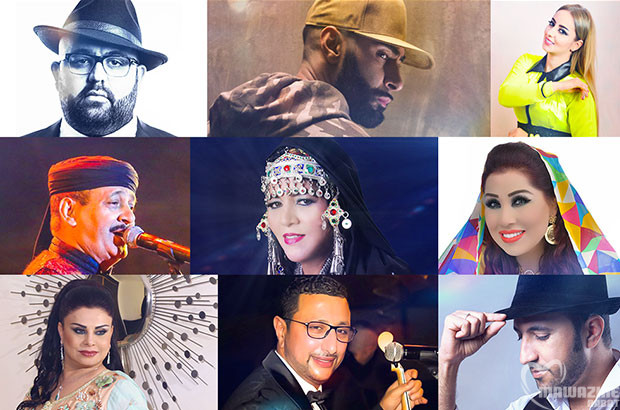News
The Great Names of Moroccan Music at Mawazine
published on 13/04/2017

Latifa Raafat, Fatima Tabaamrant, Hamid El Kasri, Zina Daoudia, Saida Charaf, Don Bigg, La Fouine, Issam Kamal et Daoudi, will perform from the 12th to the 20th of May on Salé stage.
Asmae Lamnawar and Hatim Ammor will perform on Nahda stage on Friday May 19th.
Rabat, Thursday April 13th 2017 – The 16th edition of the Mawazine festival will offer the public a nice selection of Moroccan music stars. Top-flight ambassador representative artists of the musical diversity of the Kingdom, Latifa Raafat, Fatima Tabaamrant, Hamid El Kasri, Zina Daoudia, Saida Charaf, Don Bigg, La Fouine, Issam Kamal and Daoudi will perform on the Salé stage from 12 to 20 May. Asmae Lamnawar and Hatim Ammor, however, will perform on the Nahda Stage on Friday May 19th.
The opening night will consist of special one-off concerts starring the Moroccan diva, Latifa Raafat. The Moroccan Diva, Latifa Raafat, came to the fore in the early 80’s. In 1982, she recorded her first song, Mawwal Al-Hob. In 1985, she won the Moroccan Song Prize, with the great single, Khouyi (Little Brother). As an emblematic figure in Moroccan song, Latifa Raafat has one of the most enchanting discographies, with such titles as Maghyara (Envious Am I), Dunia (O World), Al-Hamdu Li-Lah (Praise be to Allah), Ya Hli Ya Ashrani (O my Folk, O my Kin), and Ana fi Arak Ya Yamma (Shield me against Disgrace, O Mother). Thanks to her songs, Arab countries have discovered and appreciated Moroccan dialect.
On Saturday May 13th, Fatima Tabaamrant will take over. A genuine school of Amazigh song and with more than 160 poems to her credit, Raissa Fatima Tabaamrant has broken many taboos for the purpose of defending Amazigh identity. Raissa Fatima Tabaamrant was born in Id Salm, an Idauchqra tribe in Ifrane. As she worked the land in her native locality, Fatima Tabaamrant took to versified and sung speech, as well as to village collective dances. She thereafter received training and instruction from great masters, including Raiss (Chief or Leader of the band) Moulay Mohammed Belfqih, who actually helped Fatima produce her first album in 1985.
Monday May 15th will an exclusively gnaoui evening with the outstanding Hamid El Kasri. Born in Ksar El-Kebir, Hamid El-Kasri is known for his exceptional voice and rare charisma. His voice makes of him one of the most appreciated and solicited Maalems (Gnawa Masters). As of the age of 7, he has been trained by Maalem Alouane and Maalem Stitou. Highly solicited both in Morocco and abroad, Hamid El-Kasri performs regularly with American and European artists. His talent enables him to conciliate the Gnawa rhythms of the North and the South of Morocco.
On Tuesday May 16th, it will be Zina Daoudia’s turn to enchant the Slaoui audience. Daoudia is one of the major stars of Moroccan Shaabi (popular) music and one of the very few women to sing Aita (literally, a call, but figuratively a genre of Arab popular music). Together with her violin, Daoudia meets with one success after another and her name has travelled well beyond the country’s borders. Her repertoire is rich, having been enhanced by many years of performance. Daoudia impresses everyone while she is on stage, thanks to genuine lyrics and captivating rhythms. The artist has recently released several titles which have created a buzz, including `Teeny Saki (Give me my Handbag!) and Rendez-Vous, her very latest collaboration with DJ Van.
Wednesday, May 17th, the public will meet music from the south of Morocco represented by Saida Charaf. The talent and the voice of this Sahraoui Diva leave nobody unimpressed. A native of Layoune, Saida Charaf started her career as a journalist for the Spanish TV. She came to the fore thanks to Assahrato Lakoum (the Sahara is Yours!) on 2M TV Channel. Since then participated in a succession of festivals and events in Morocco, Libya, Jordan, and Egypt. She even went on stage with such hugely renowned artists as Jean Michel Jarre. Said excels not only in the Sahraoui repertoire but also in Amazigh song, traditional music, and Moroccan popular song.
Thursday May 18th concert will bring on the stage two great names of Moroccan and French rap music; namely, Don Bigg and La Fouine. The first one is considered to be one of the pioneers of Moroccan rap, with his candid style and his songswhich address the main concerns of Moroccan youth. At the age of 20, Bigg decided to put his law studies on “stand-by,” so to speak, and to devote himself to his passion. He started his career with the Mafia C band before opting for a solo career and releasing his first album, Mgharba `Tal Mout (Truly Moroccans to Death), which was, had phenomenal success. The second album, titled Byad ou Khal (White or Black) was released. Bigg also engaged in various international featuring and collaborations. In parallel to this, Don Bigg performed in various festivals, went on tour across Morocco, and exported Moroccan rap to Europe and the Middle East.
As to La Fouine (Laouni), he is a French-Moroccan rapper who was born in Trappes in 1981. Drawn more to music than to studies, he quit school at the age of 14. In 2003, he signed up with Sony. He was also employed as a mediator in sensible districts in Trappes. La Fouine released his first album, titled Bourré de Son (Crammed up with Sounds) in 2004, and then a second one, titled Aller retour (Round Trip), three months later. Success came in 2009 with the Opus, Mes Repères (My Landmarks), which was consecrated double Golden Record. La Fouine also regularly released mix-tapes: Planète Trappe 1 et 2 (Planet Trappes 1 and 2); Capitale du Crime 1 et 2 (Crime Capital 1 and 2). This enabled him to multiply collaborations and artists discovery, through his label, Banlieue Sale (or, Dirty Suburb).
On Friday May 19th, it is Issam Kamal’s turn to perform before his fans. Former leader of Mazagan Band. In the past, Issam produced such successful titles as Dounia (Worldly Life), Fabor (Free of Charge), Zina (Cute One), A Labess Labess (No Hardship), Groovawahia, Ayli Ayli –the latter having been sung in duo with the Danish Band, Outlandish—and Dima Labess (Always Ok, no Worries), in collaboration with RedOne and Khaled. Issam shows a keen interest in the modernization of popular music and Moroccan culture. He is often invited by the media, associations, schools, and universities in order to spur young people to re-appropriate their culture and strive after its development.
On the closing night it is Moroccan popular music that willl be at the spotlight, featuring Abdellah Daoudi. Daoudi is a singer and composer who accessed the world of traditional popular Moroccan music quite early. He learnt how to play several musical instruments and mastered the violin. The first album he released is titled Aya Daoudia, which actually propelled him into a great artistic career. The public always accords him a warm reception and the media acknowledge his standing as a great artist. Having produced more than 100 albums to date and accumulated a multitude of concerts held in Morocco and abroad, Daoudi is indeed a worthy representative of the Moroccan popular song—which is widely acclaimed by the masses.
On Friday May 19 th, Nahda Stage will witness the performance of Asmae Lamnawar and Hatim Ammor.
Asmae Lamnawar walked on the stage for the first time in 1995 when she singing career when she took part in a national television production called, Angham. Asmae Lamnawar tried her hand in a multitude of activities and recorded the soundtracks to several Moroccan films. But it is in Egypt that Asmae made a name for herself. In 2002, the Cairo Opera house opens the way for her. She then releases her first album Wanari. In 2004, she records the duo Ashko Ayaman with the Iraqi singer Kadem Al Saher. Asmae then signs for the Rotana Label and releases in 2008 the album Men hena li bokra (From here to tomorrow). The third opus was released in 2009, with two duets: Al Mahkama (the court) with Kadem Al Saher and Khayna with Rashed Al Majid. In 2010, she releases her fourth opus.
Hatim Ammor made his mark with his victory in the 5th edition of Studio 2M. He recorded his first song Wala Marra, in collaboration with the Lebanese musician Marouane Khoury. His first album Gouli is a great success. In 2007, Hatim signed a contract with an Egyptian production company Alam Al Fan to launch his second opus Chabba. In parallel, he made his first steps as an actor, first in Egypt, then in the Moroccan television series Bent Bladi, in 2009. Hatim also sings the opener of the same series. Following this, several songs have been added to his repertoire: Daba Daba, Mgharba, Nadani Houdnek, Yemchi Hal, Sahratna Maghribia, Fbali and an album in the pipeline.



